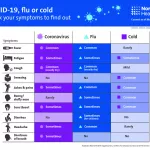Did you just get a diagnosis of traumatic brain injury (TBI) and wonder how Medicare fits into the picture? Good news: starting in 2025, Medicare officially treats TBI as a chronic health condition, unlocking special plans that can make care more affordable and coordinated. Below is a straight‑to‑the‑point guide that answers the big questions, shares real‑life tips, and shows you exactly how to get the coverage you deserve.
Think of this as a friendly chat over coffee—no jargon, just clear answers and a few stories you’ll recognize. Let’s dive in.
Why TBI Matters
2024 CMS Rule Change
In June 2024 the Centers for Medicare & Medicaid Services (CMS) issued a final rule that re‑classified traumatic brain injury as a chronic condition. The rule, published in the Federal Register, means anyone with a documented TBI can now qualify for Medicare Advantage Chronic Special Needs Plans (C‑SNPs) beginning January 2025. According to the CMS final rule, this shift acknowledges that TBI isn’t just a one‑time event—it often brings long‑term medical needs.
Impact on Beneficiaries
For people 65 and older, or younger adults who receive Medicare due to disability, the change is a game‑changer. It opens doors to plans that bundle hospital, outpatient, and prescription benefits with extra services like transportation and tele‑health. In short, you won’t have to juggle separate bills or scramble for appointments.
Expert Insight
Dr. Sarah Nguyen, a neurologist at the Boston Medical Center, says, “Recognizing TBI as a chronic condition validates the reality that many survivors need ongoing rehab, cognitive care, and specialist coordination. It’s a step toward more holistic, patient‑centered coverage.”
Who Is Eligible
Standard Medicare Basics
First, you need to be enrolled in Original Medicare (Part A and Part B) – either because you’re 65 or older, or you qualify through a disability or end‑stage renal disease (ESRD) status.
TBI‑Specific Eligibility for C‑SNPs
Beyond the basic Medicare enrollment, you must have a documented TBI diagnosis in your medical record. The diagnosis can be from a hospital discharge summary, an MRI report, or a physician’s note coding the injury (ICD‑10‑CM S06.xxx). Once that’s in place, you’re eligible to shop for a Medicare Advantage Chronic Special Needs Plan that includes TBI in its enrollment criteria.
Enrollment Windows to Watch
- Initial Enrollment Period (IEP): The first 7 months after you become eligible for Medicare.
- Annual Election Period (AEP):** October 15 – December 7 each year; perfect time to switch or enroll in a TBI‑C‑SNP.
- Special Enrollment Periods (SEPs):** If you move, lose other coverage, or your current plan drops its TBI‑C‑SNP option, you may qualify for a SEP.
Quick Eligibility Checklist
| Criterion | Yes/No |
|---|---|
| Enrolled in Medicare Part A & B | |
| Documented TBI diagnosis | |
| Living in an area where a TBI‑C‑SNP is offered | |
| Within an enrollment window |
C‑SNP Basics
What Is a C‑SNP?
A Chronic Special Needs Plan (C‑SNP) is a type of Medicare Advantage (Part C) plan designed for people with a specific chronic condition—in this case, TBI. While all Part C plans must cover everything Original Medicare does, C‑SNPs add extra benefits and tighter care coordination geared to the condition.
Benefits Tailored for TBI
- Coordinated care among neurologists, physical therapists, and mental‑health providers.
- Reduced cost‑sharing for hospital stays, imaging, and prescription drugs.
- Extra services such as meal delivery after discharge, transportation to appointments, and over‑the‑counter health items.
- Extended hospital days and more generous out‑of‑pocket maximums.
Limitations & Risks
Not every private insurer offers a TBI‑C‑SNP, and the networks can be narrower than those in standard Medicare Advantage plans. Premiums, deductibles, and copays vary widely, so you’ll want to compare side‑by‑side before enrolling.
Sample C‑SNP Comparison
| Carrier | Monthly Premium | Deductible | Key TBI Extras |
|---|---|---|---|
| UnitedHealthcare | $45 | $0 | Tele‑health, transport, OTC allowance |
| Humana | $38 | $150 | Extended rehab days, meal delivery |
| Aetna | $52 | $0 | Monthly prescription credit, caregiver support |
What Medicare Parts Cover
| Medicare Part | Typical TBI‑Related Services | How It Works |
|---|---|---|
| Part A | Inpatient hospital stays, skilled nursing facility rehab | Coverage after meeting the deductible; no coinsurance for the first 60 days |
| Part B | Doctor visits, MRIs/CT scans, PT/OT, cognitive testing | 20 % coinsurance after the Part B deductible |
| Part D | Prescription meds for seizures, pain, mood disorders | Monthly premium + copay per prescription |
| Part C (C‑SNP) | All of the above plus coordinated care, transport, extra hospital days | One combined premium; often lower out‑of‑pocket max |
Verifying Coverage
When you’re unsure whether a specific service is covered, call Medicare at 1‑800‑MEDICARE or log into Medicare’s “Find a Plan” tool. Have your Medicare card and the CPT/HCPCS code for the service handy; the representative can confirm eligibility on the spot.
Costs You’ll Actually Face
Premiums, Deductibles, and Out‑of‑Pocket Maxes
For 2025, typical TBI‑C‑SNP premiums range from $35 to $60 per month, with many plans waiving the Part A/B deductible if you stay within the network. Out‑of‑pocket maximums usually sit between $3,000 and $5,000, far lower than the $7,550 standard for many Medicare Advantage plans.
When You Might Pay More
- Seeing a specialist who isn’t in your plan’s network.
- Using “non‑covered” services such as certain experimental therapies.
- High‑cost prescription drugs that exceed the plan’s formulary.
Ways to Lower Your Bill
Consider a supplemental Medigap plan if you stay on Original Medicare, or explore Medicaid dual‑eligibility if your income qualifies. Some state programs also offer additional assistance for transportation and home‑health aides.
Real‑World Example
Maria, a 68‑year‑old who suffered a moderate TBI from a fall, paid $1,200 out‑of‑pocket in her first year on Original Medicare. After switching to a Humana TBI‑C‑SNP, her annual costs dropped to $420 thanks to zero Part B coinsurance and a $100 monthly transport stipend.
How to Enroll in a TBI‑C‑SNP
Gather Required Documents
You’ll need:
- Your Medicare card.
- Medical records showing the TBI diagnosis (hospital discharge summary, MRI report, or physician note).
- Proof of residence (utility bill) if the plan checks ZIP‑code eligibility.
Step‑by‑Step Enrollment
- Log in to Medicare.gov’s plan finder and filter for “Chronic Special Needs Plans” that list TBI as a qualifying condition.
- Compare premiums, deductibles, and extra benefits using the tables above.
- Choose the plan that feels right and click “Enroll.”
- Confirm your enrollment by signing electronically or mailing the paper form.
- Within 30 days you’ll receive a welcome packet with your new member ID and a list of in‑network providers.
Helpful Resources
Call your local State Health Insurance Assistance Program (SHIP) for free, personalized counseling. They can walk you through the paperwork and answer any “what‑ifs” you have.
Real‑Life Stories & Expert Commentary
John’s Journey
John, 72, was hospitalized after a bicycle accident caused a severe TBI. He spent two weeks in a trauma ICU, then entered an inpatient rehab facility. When his original Medicare coverage ran out, his family feared the cost of ongoing therapy. By enrolling in a UnitedHealthcare TBI‑C‑SNP, John received weekly neuro‑rehab appointments, a prescription drug discount, and a dedicated case manager who coordinated his physical therapist, speech pathologist, and neurologist. “It felt like having a personal health concierge,” John says.
Lena’s Challenge
Lena, 66, struggled with post‑concussion headaches and depression. Original Medicare covered her physician visits, but the copays added up. After switching to a Humana C‑SNP, she qualified for a free mental‑health hotline, a monthly OTC health‑care allowance, and transportation to her weekly counseling sessions. “I could finally focus on healing instead of worrying about the bill,” she notes.
Expert Commentary
According to a 2023 study published by Healthline, Medicare spent billions on TBI‑related care in 2022 alone, underscoring the financial impact on both the system and patients. Dr. Saef Izzy, a neurologist who led a 21‑year JAMA Network Open study, warned that “TBI is not just an acute injury; it’s a chronic disease that affects cardiovascular, endocrine, and psychiatric health.” His research showed a dramatically higher risk of diabetes, heart disease, and anxiety among TBI survivors, reinforcing why long‑term coverage matters.
Resources, Tools & Trusted Links
Here are a few go‑to places for accurate, up‑to‑date information:
- CMS Final Rule on TBI: The official Federal Register notice outlining the chronic‑condition designation.
- Medicare “Find a Plan” Tool:Search for TBI‑C‑SNP options in your ZIP code.
- National TBI Association: Resources on coping strategies, advocacy, and support groups.
- CDC Head‑Start Programs: Prevention tips and data on TBI incidence.
- State SHIP Offices: Free, unbiased counseling for Medicare decisions.
All external references are embedded within the relevant sections to keep the information trustworthy and easy to verify.
Conclusion
Understanding Traumatic Brain Injury Medicare coverage is a crucial step toward peace of mind after a life‑changing injury. The key takeaways?
- Eligibility: If you have Medicare and a documented TBI, you can tap into the new Chronic Special Needs Plans.
- Coverage: Parts A, B, D and especially Part C (C‑SNP) can provide coordinated, low‑cost care for scans, rehab, meds, and extra services.
- Action: Verify your eligibility, compare plan benefits, and enroll during the next open enrollment window.
We hope this guide feels like a helpful friend who’s walked the same road. If you have questions, need clarification, or want to share your own Medicare journey, please leave a comment below or reach out to your local SHIP office. Your experience could be the answer someone else is looking for.

























Leave a Reply
You must be logged in to post a comment.